MercoPress. South Atlantic News Agency
Tag: National Party (Uruguay)
-
Saturday, November 29th 2014 - 07:45 UTC
Vazquez and Mujica disputing the leadership of Uruguay's ruling Broad Front
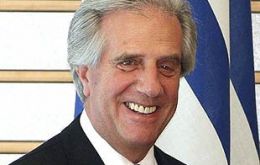
On Sunday Uruguayan voters will confirm in a runoff the country's next president, which according to all forecasts will be Tabare Vazquez. An oncologist by training, former president (2005/2009) and former mayor of the City of Montevideo, Vazquez and the Broad Front coalition was just less than three percentage points short of the needed 50% in the first round on October 26.
-
Friday, October 31st 2014 - 08:15 UTC
Uruguayan challenger promises to abolish tax on pensions and lift the income tax floor

Uruguay's opposition candidate Luis Lacalle Pou admitted on Thursday that defeating incumbent Tabare Vazquez in the 30 November runoff is 'difficult' but not impossible. In last Sunday's first round the incumbent candidate garnered 47.9% of the vote and Lacalle Pou, 30.9%.
-
Wednesday, October 29th 2014 - 05:49 UTC
Praise from OAS to Uruguay's electoral system and political practice
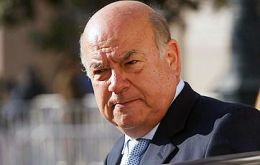
The Organization of American States Secretary General, (OAS), congratulated the Uruguayan people on their democratic spirit shown during Sunday´s general elections. He also extended praise to the two candidates that advanced to the second round, Tabare Vazquez from the ruling Broad Front, and Luis Lacalle Pou from the National Party.
-
Tuesday, October 28th 2014 - 07:03 UTC
Uruguay's ruling Broad Front headed for parliamentary majority
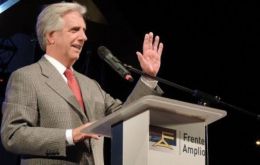
Uruguay's ruling Broad Front coalition, despite pollster forecasts to the contrary, confirmed their dominance of local politics and are likely to enjoy a parliamentary majority, after the Sunday presidential election that left Tabare Vazquez as favorite to succeed José Mujica as head of state.
-
Monday, October 27th 2014 - 06:57 UTC
Vazquez anticipates victory in November and pledges consensuses with other political forces

Uruguay's ruling coalition Broad Front presidential candidate Tabare Vazquez underlined on Sunday night that his political force received the most votes and is in the “threshold” of again having a parliamentary majority; however he anticipated he was willing to work to reach consensuses in political and social issues with other parties or groupings.
-
Monday, October 27th 2014 - 06:46 UTC
Bordaberry pledges support for Lacalle Pou in the 30 November runoff

Pedro Bordaberry, the Colorado party presidential candidate who did not make it to the runoff in Uruguay's Sunday election, announced the country 'urgently needs changes' and in this new scenario National party candidate Luis Lacalle Pou is the option.
-
Monday, October 27th 2014 - 06:31 UTC
Uruguayan presidential run-off on 30 November; ruling coalition ruins pollsters forecasts
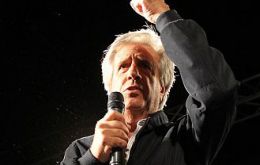
Uruguayan pollsters again seem to have missed their target regarding estimate results of Sunday's legislative and presidential elections: the ruling Broad Front coalition presidential candidate Tabare Vazquez took a strong lead in the exit polls, and although he will be forced to a run-off with runner up Luis Lacalle Pou as anticipated, the percentage numbers indicate he should be able to achieve a comfortable win at the end of November, contrary to what was forecasted.
-
Friday, October 24th 2014 - 07:19 UTC
Uruguayan candidates end campaigns with their minds on a November runoff
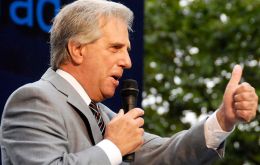
The three main presidential candidates for Uruguay's Sunday 26 October election closed their campaigns on Thursday evening with three huge political rallies that gathered thousands of militants and put an end to months of travel, speeches, flesh pressing and baby kissing, in what could prove to be the tightest race in recent years.
-
Wednesday, October 22nd 2014 - 10:02 UTC
Uruguay faces the most competitive election since the return of democracy
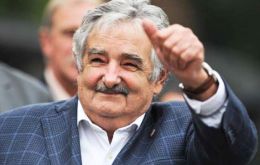
Uruguay is less than four days away from Sunday 26 October general election with opinion polls unable to forecast a clear winner, and a strong possibility that the left wing coalition could lose its legislative majority enjoyed in the last ten years and even the Executive.
-
Monday, October 20th 2014 - 08:31 UTC
First time voters in Uruguay more attracted to opposition candidate Lacalle Pou

Uruguay's general elections next Sunday are not only a neck-to-neck dispute between the two main presidential candidates, (unpredictable only six months ago), but are also revealing that the ruling coalition has lost its dominant allure over new voters, according to pollsters.
